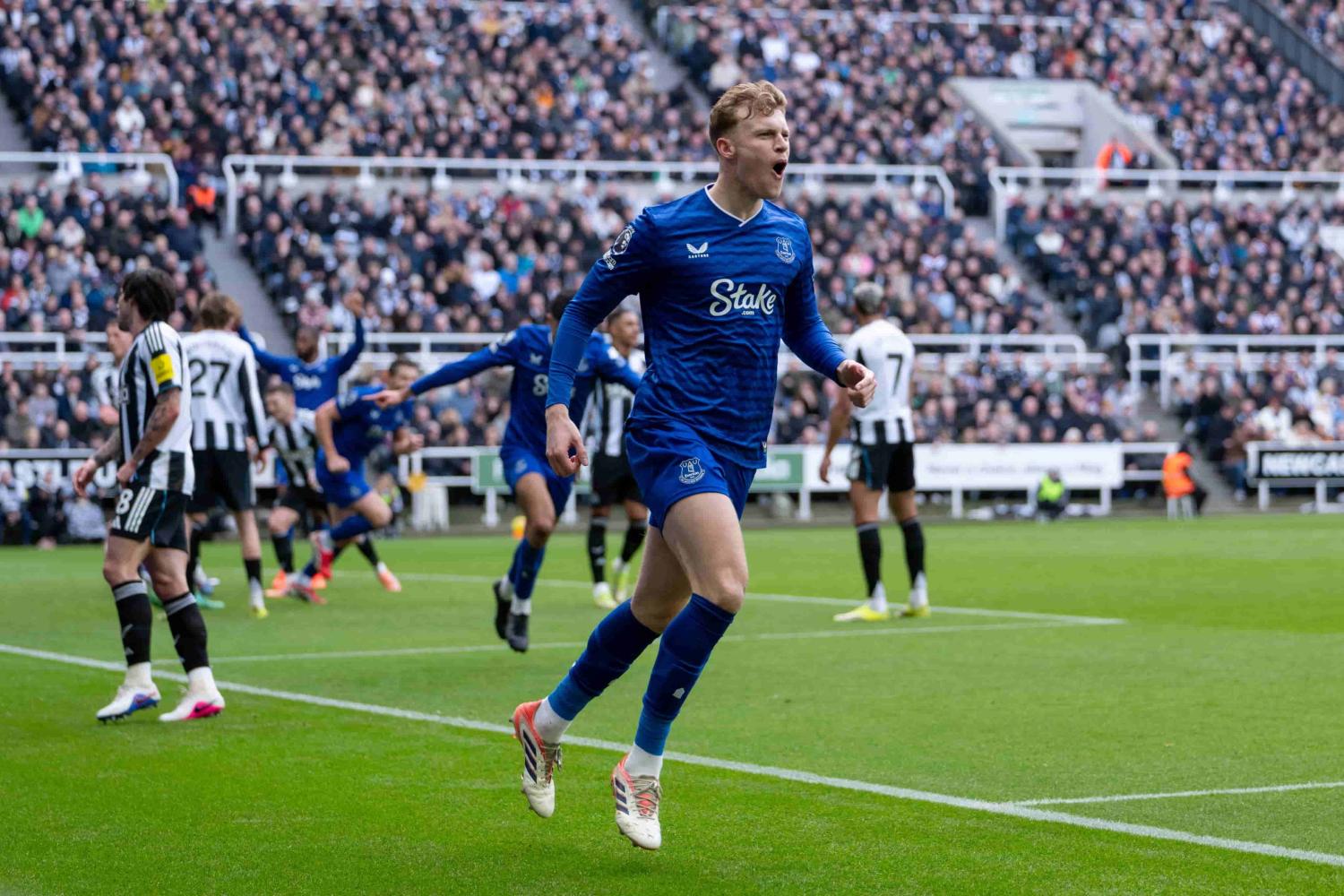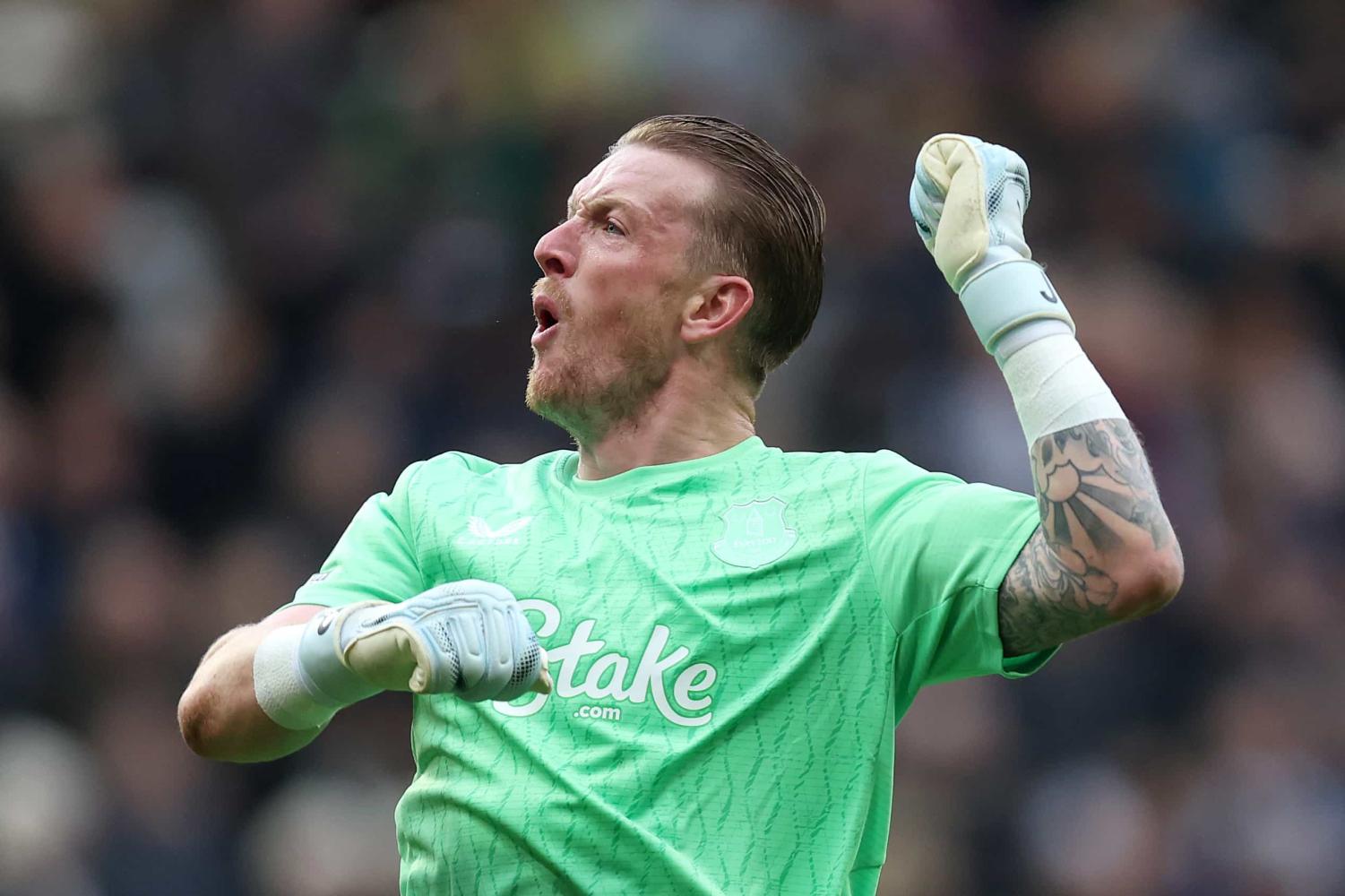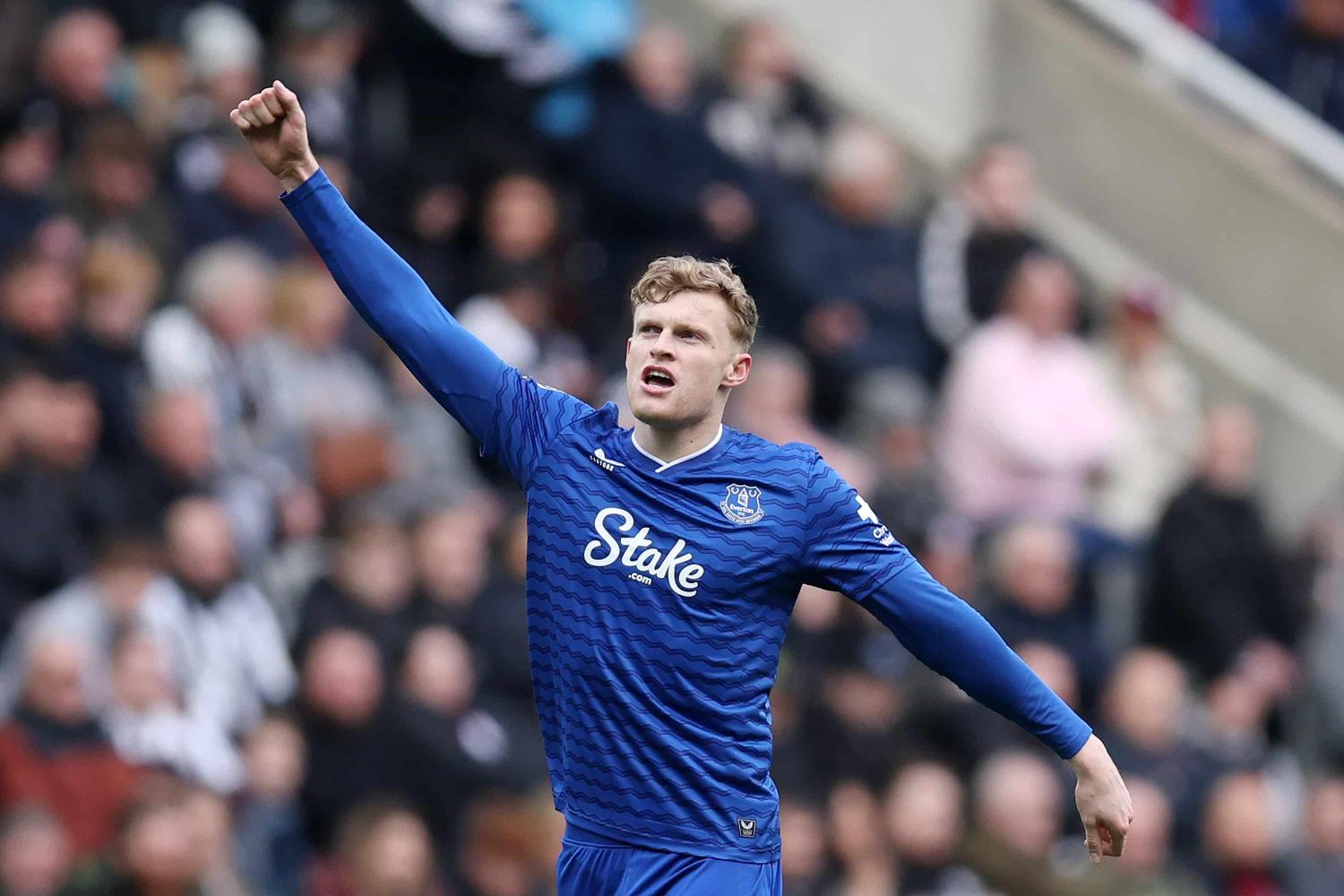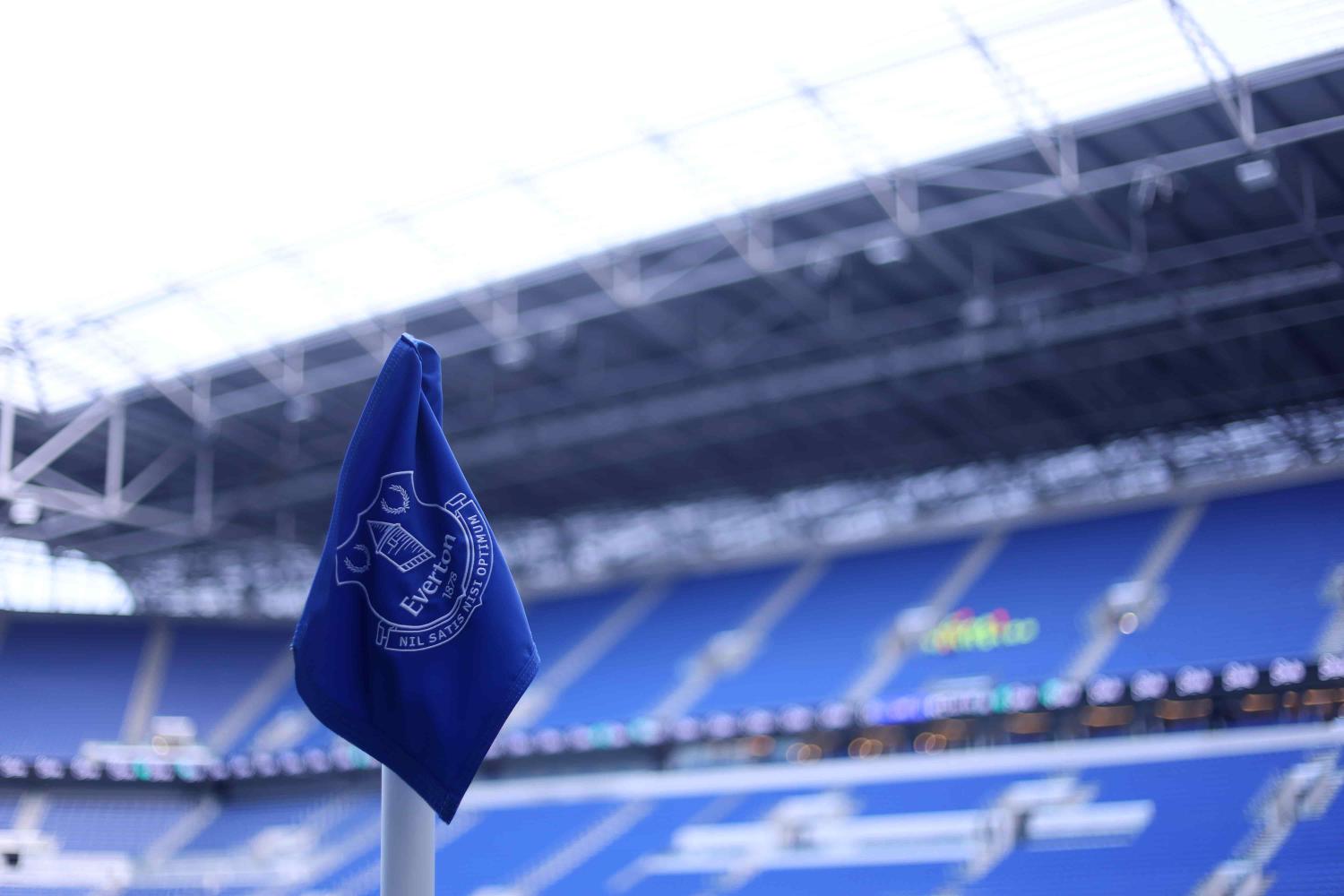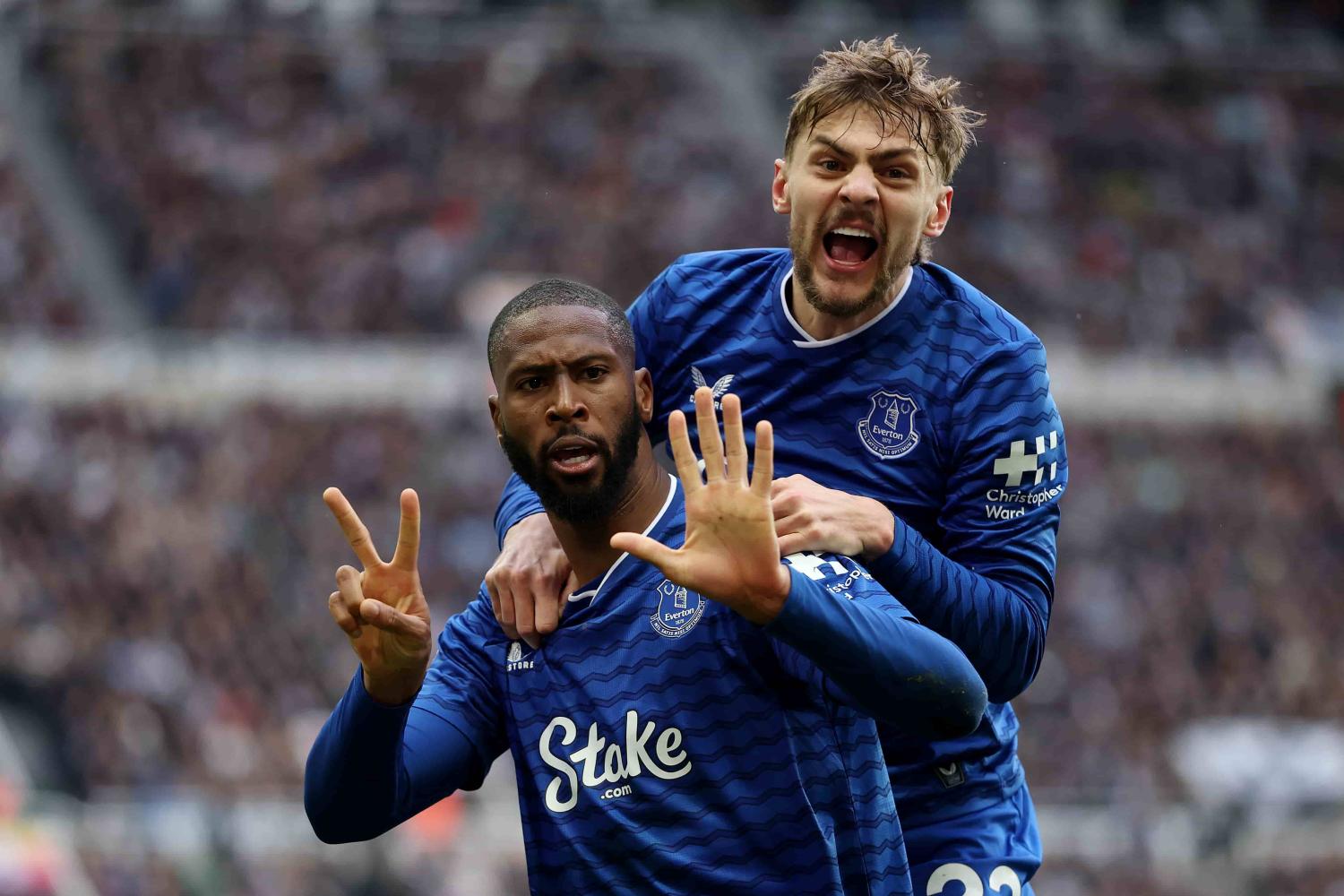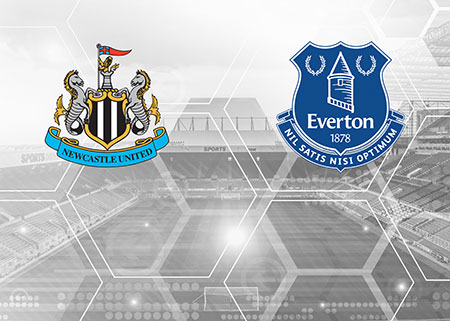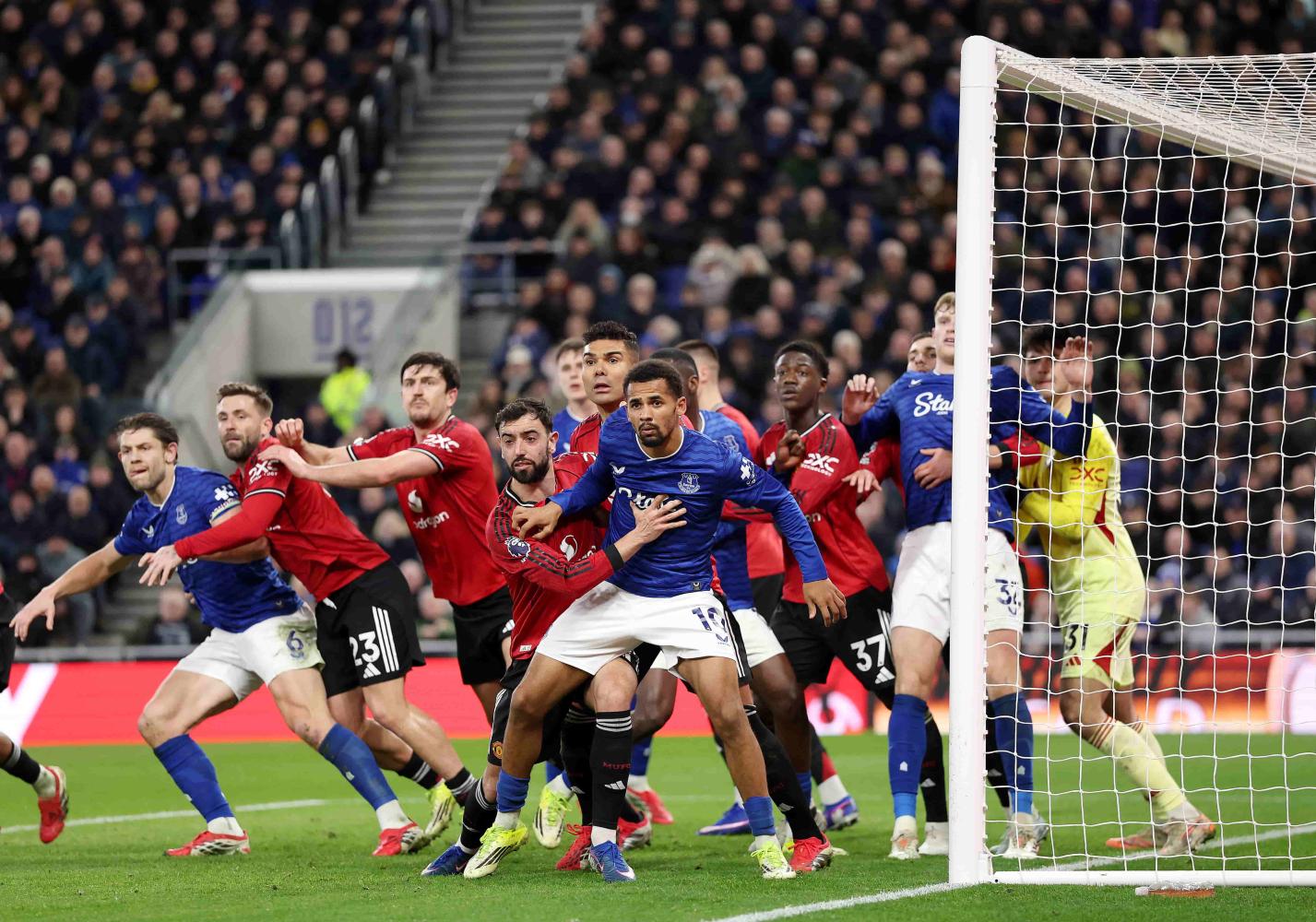|
The Rob Fox Column Stand, by Rob Fox
If you repeat something often
enough, it has to be true eventually, and hopefully this time it
is. Everton�s season has finally started. Next up is Middlesbrough
again,
which will be tough, but then we are repeatedly told that all Premiership
games are tough these days. A win would ease a lot of the pressure; anything less would pile it back on, but I am going to throw in another
clich� already � all a manager and players can affect is the performances
and hope that the results follow naturally. Hopefully we are now over
the worst and our form and results will improve steadily and move us away
from danger. The most positive aspect of last week is that we could
easily have got a result in all three games, although by the same token we
could have lost all of them as well. What we were able to do is react to
a defeat by winning the next game. There is no guarantee of a win next
Sunday, but there is every hope now of a further improvement in
performance, and that we can continue this over the coming weeks and
months. Defeat against Birmingham would have seemed disastrous, but no
one game is more crucial than another at this stage. It�s how we perform
over a period of time that counts and I think it�s fair to say that if we
play at close to our full potential, and can keep key players fit, we
should not be concerned about relegation. Nothing is guaranteed in
football though, and we cannot afford to be complacent. Even the
staunchest Moyes fan cannot be 100% confident of us staying up after the
start we have made, and it would be understandable if the Everton Board of
Directors were
getting twitchy. It is a very difficult call to make, especially when a
chairman and manager share the same vision, although it is very difficult
and some would say negligent to ignore results for too long. Bill
Kenwright seems to have made the decision that David Moyes�s methods are
correct for this club and will not be pressured or panicked into making a
change. It is a leap of faith for any chairman to do this, and I would
suggest it is vital that Kenwright is in regular contact with the manager
to ensure he is still focused and confident and able to withstand the
undoubted pressure he is under. If, as seems the case, Kenwright
believes in Moyes�s overall methods and long-term vision, and is convinced
that Moyes is still doing the right things, then he is absolutely correct
to back the manager and remove the extra pressure of having his job on the
line. It also gives the clear message to the staff and players that Moyes
is still very much in charge and it is a case of either shaping up or
shipping out. When you are on your uppers, as we have been, you look
for any crumbs of comfort you can. At the start of the season, we played
quite well with little reward. The Bucharest game marked out a real low,
with the Fulham game indicative of our problems. We controlled much of
the game without creating clear-cut chances and paid the price. Since
then, our performances have declined until the Chelsea game bucked the
trend. In fairness, we didn�t play tremendous football against Chelsea
but we went toe to toe and in the latter stages made a genuine attempt to
win the game. The Middlesbrough performance showed some of our frailties,
but the introduction of Van der Meyde at least saw us put some concerted
pressure on the away team and create a few half decent
chances. Finally, against Birmingham we possessed just enough
creativity to fashion a goal, and enough steel to see out the result in an
understandably nervy second half. In truth, the performance wasn�t hugely
different from some of our others this season, but this time it brought a
win. Luck may well have played a part but, just as our results hit a
downward trend, they are now on a slight upward trend � in the Premiership
at least. Just as the loss of Gravesen last season is seen by many as
having a huge bearing on the results since, the easy conclusion to draw is
that the introduction of Andy van der Meyde made the difference against
Birmingham. There is almost certainly a grain of truth in there, but the
main phenomenon this highlights is the fine margins involved between
success and failure in the Premiership at present. Under David Moyes we
have seen the evidence of this clearly. We have had sustained periods of
time where we have been just good enough to win consistently and build up
momentum. By the same token we have also had periods where we have not
quite been good enough and have lost consistently. The fact that such
shifts of fortune have occurred with largely the same personnel has added
to the difficulty in pinpointing exactly why our fortunes have fluctuated
so dramatically. It is easy to portray footballers as different because
of their lifestyles and the fact that they are professionals. We expect
them to be robotic and always perform at their best. This is totally
unrealistic. Gary Naysmith is a case in point. When he first arrived he
looked to be a very good signing, but there is no doubt his career has
since
gone awry. Last season he looked to be on his way out, seeking a move
back to Scotland for family reasons. This was the last straw for some
Blues, who wrote him off entirely. It transpires that, on top of all his
injury problems, his mother died of cancer during the summer. How long he
has had that hanging over his head is anybody�s guess, and to what extent
it has affected his form is hard to gauge. The hardened cynic would say
that a highly paid professional should be able to clear their head to do
their job, but that is a very simplistic reading of things. A player�s
mental state is key to their ability to do their job. Some will have the
steel, or coldness, to shut everything else out, but most are just as
affected by circumstances as the rest of us; their confidence just as
fragile. Kevin Kilbane springs to mind at this point. Has he lost
interest or confidence? [Or is he overly concerned about the
birth of his child? � Ed] In life in general, when things are going well
people tend to shut any worries out and ride the wave. When things are
going badly and people are under stress, all their worries and
insecurities come to the surface. It is a mental battle to retain your
focus. Professional footballers have to retain this focus under physical
and mental duress, under the spotlight of thousands of lunatics who�s
lives seem to resolve around their efforts. Still, at least Evertonians
are understanding enough to get out on the pitch and help the team when
things are going wrong. [Uh? You mean like the diminutive
9-yr-old Richard Dunn???] There is no disguising the fact that since last
Christmas results overall have been poor, and David Moyes is shouldering
the lion�s share of the blame for this. Moyes�s share of the blame has
been widely discussed, but one factor which has not been focused on much
is the part the players have played in our decline. Blaming the manager
is the easy option, but there only so much control any manager has. The
three teams who finished above us last season were clearly head and
shoulders above the rest of the Premiership. We were not, and needed to
stick together and retain our team ethic to get us through. The fact is
we have not been anything other than a mediocre side, at best, for many
seasons. Some Evertonians have tried to play down Moyes�s part in our
finishing 4th last season in order to support their claim he
must be sacked. Bollocks, plain and simple. Finishing 4th last
season was very much Moyes�s achievement. Over 38 games we accumulated 61
points and deservedly finished 4th. [I think the
reverse is true: If Moyes was rightly praised for creating and inspiring
the 4th-place finish, he has to accept responsibility for achieving the
awful start we made to this season.] In the second half of last
season, we were as solid as ever defensively, but lacked creativity. The
loss of Gravesen played a major part in this. Simply, he was the one
player who had the skill and power to retain possession and carry the ball
in the opposition half, enabling us to keep the pressure on the opposition
for sustained periods. Possession isn�t the be-all and end-all, but
clearly if you can keep the ball in the opposition half as much as
possible you have more chance of scoring and less chance of
conceding. Such pressure led to many a second-half winner last
season. Moyes deserves due credit for finding the right balance in the
team, but the loss of Gravesen was clearly a blow. Results were erratic
after his departure and we were certainly less fluent, but a combination
of nerves and tiredness were seen as mitigating circumstances. A huge
effort saw us qualify for the Champions League and confidence was sky
high, tempered somewhat by a 7-0 drubbing at the hands of a Champions
League standard team in Arsenal. Now, put yourself in the shoes of the
likes of David Weir, Kevin Kilbane, Marcus Bent, Tony Hibbert and Lee
Carsley for example. Good professionals, but facing a very daunting
prospect in the Champions League. Exciting, but daunting nonetheless. Carsley of course missed
out, but Kilbane and Bent in particular seemed out of their depths and
knew it. Weir and Hibbert were shown up for pace and technique
respectively, but adjusted well enough. The squad that started the season
was basically the one that finished last season, with only Phil Neville
and Simon Davies being added for the games against Villarreal. Duncan
Ferguson�s ruled-out goal ensured that Everton could feel hard done to,
but the disappointment was undoubtedly huge. Having given so much, it was
all over before it had begun. The squad was left in a state of
flux. One the one hand, we had our stalwarts who had earned the
opportunity through sheer graft seeing it cruelly snatched away. On the
other hand, we had our shiny new recruits, brought in for European
football and yet to kick a ball in anger. With players still being bedded
in, we then suffered the humiliation of Bucharest and everything came
crashing around our ears. Now, imagine you have worked extremely hard to
gain the greatest opportunity of your life, perhaps an interview for your
dream job. You have then spent a lot of time and energy preparing for
this opportunity, only to see it snatched away in a heartbeat and being
left wondering how it all went wrong. Be honest, could you just pick
yourself up, dust yourself off, and go back to your day job full of
confidence and energy to attempt to gain that opportunity again at a later
date? Especially if you know that your boss is going to want you to climb
the mountain again. Suddenly, it was back to reality. We were smack bang
in the middle of a crisis with confidence shattered. The cumulative
effect of losing 7-0 to Arsenal, 5-0 to Fenerbah�e, and our poor start had
seen small doubts grow into huge problems. A few months back I read a
quote from an Everton player, perhaps Weir, where he stated how important
it is for us to be solid defensively as we weren�t a team who were going
to score a lot of goals. At the time, it was a slightly worrying
comment, but nothing more. Now, we have seen the culmination of this
belief. We are still reasonably solid, but conceding the odd goal where
we weren�t before, and not scoring goals. Quite obviously, our lack of
creativity is putting extra pressure on the defence to hold
firm. Confidence is a huge factor in this. I think it is fair to say
that nobody has reached their own personal standards of last year, and the
new signings have hardly set the world alight so far. A 10% dip in form
is enough at this level to see you dragged back in with the also-rans,
scrabbling for any sort of consistency. We are clearly lacking a spark in
terms of creating and finishing chances, and players seem to be looking to
each other to provide it. In most games we have started positively, but
our lack of confidence in attacking areas has made us increasingly edgy
and prone to errors. It is very hard to lift yourself out of this
situation when players have lost confidence not only in themselves, but
also their team-mates. Midfielders are less likely to make a forward run
if they don�t believe the ball is going to reach them, and are less likely
to carry the ball and take players on if they fear the consequences of
losing possession � howls of derision from the crowd, and an attacking
opportunity for the opposition. In the Premiership, a slight dip in form
can have disastrous consequences. 1-0 wins can easily become draws, which
can easily become defeats. The deluge of games in the early part of the
season has been relentless, with any free weeks seeing most of the squad
going off round the world on international duty. There has been minimal
time between games to work on bedding new players, such as Nuno Valente
and Matteo Ferrari, into our system, or to work on tactics and preparing
for the next game. [Now, Rob, that is simply ridiculous.
They hardly play more than one game a week, and they have plenty of time
between games for training. That should be our real concern: what
the hell ARE they doing in training??? Certainly not practising
retaining possession or passing the ball to a teammate!] Much has been made of the systems we have used and the
persistence with 4-5-1. The problem is that when we adopt 4-4-2 and open
up the midfield we are then running the risk of the team with the greater
attacking potency getting enough chances to kill the game off. If
Birmingham weren�t as bereft of confidence as ourselves, the result on
Saturday could have been different. Our mindset seems to be that we have
to get 1 goal and then defend. If we concede, we feel we have lost the
game. David Moyes has received a lot of the blame for this, and
obviously the manager needs to take his share of the blame, but in truth
once the players have this in their minds it is very hard to shake
off. [That goes completely against what the players said, on
seeing Moyes's team selection at St Andrews, where the message was that
they understood he wanted them to attack.] The only way to disprove the theory is by scoring a few goals, and
we have set out positively in most of our games, but have quickly gone
into our shells, allowing the opposition to grow in confidence. Players
are looking to one another to get us going and take the game to the
opposition. In some respects, it is Catch�22. Playing 4-4-2 and being
positive increases the possibility of creating chances and scoring goals,
but it also increases the likelihood of the opposition doing so. At
Arsenal and Tottenham, for example, a gung-ho approach may easily have led
to another hiding which would have damaged morale further. With the
personnel available recently, our attacking options have been severely
limited. Going behind in any game has been disastrous, so keeping it
tight is an understandable approach. In fairness, we have used 4-4-2 on
several occasions. In fact, this has been my main problem with Moyes
this season in that he has repeatedly chopped and changed systems and
line-ups. I think he does want to use 4-4-2 long-term, but has
been caught in two minds as to the best way to go in the short term.
[So why does he start games with 4-5-1, and then switch to 4-4-2 only
when we go behind? At Birmingham he finally did the opposite,
starting with attacking intent rather doing the Smithsonian thing of
defending a 0-0 scoreline from the start. Surely one could argue
that was the key difference?] The week in the Lakes,
coupled with the meeting after the Manchester City game, was seen by some
as a last desperate throw of the dice, but the reality is that this was
the first realistic opportunity to get together as a team this
season. The trip to Thailand was pretty much bound by a demanding
schedule and adjusting to the conditions. There was little opportunity
for players to get to know each other as there was in Houston. [This
is preposterous. Why could they not have gone away and done the
bonding thing in any of the weeks when there were no midweek games or
internationals?] As the
season has progressed, we have found ourselves in a rut. The trip to the
Lakes was timely in that it gave a real opportunity for bonding and
getting problems out into the open. When things are going badly there is
bound to be friction � if there isn�t a reaction there is something
seriously wrong � and this was a chance to iron these issues out and focus
mentally on the task in hand. Open discussion and taking the players�
views into account whilst retaining control of the situation is good
management. [So why did it take so bloody long to happen???] The difference in approach against Chelsea was palpable, with
players willing to take risks again. Midfielders were carrying the ball,
players were making runs and looking for the ball. Indicative of the
rediscovered zest has been the sight of Tony Hibbert putting in some
decent quality crosses in each game. Such small differences can mount up
to making a huge contribution to turning narrow defeats into draws and
victories again. There were signs of the old Everton against
Birmingham. The key now is to continue in the same vein. James Beattie
is getting fitter, and Andy van der Meyde�s willingness to run at
defenders in the first half, and his confident use of the ball, will have
provided encouragement to the likes of Tim Cahill, Mikel Arteta and Simon
Davies that we can take the game to opponents. The danger, of course, is
that if Van der Meyde continues to improve and finds his best form then
others will rely on him to provide the creativity. It is vital now that
everybody stands up to be counted. Phil Neville is one who has tried to
take on the mantle, and has perhaps tried to do much at times to cover for
errant team-mates. Meanwhile the likes of Joseph Yobo, who has made one
or two high-profile errors, have shown a desire and ability to bounce
back. The key now is for everybody to do this consistently. Players need
to continue to want the ball and be brave in possession. If we can start
to do that consistently then we won�t be talking about systems and
formations, but about Everton winning games. I realise that I have
side-stepped a lot of the issues that other people have discussed
regarding the manager, and this is not an attempt to whitewash that, but
there are so many factors that contribute to running a team successfully
that to try and cover them all in one article is impossible. I�m sure
there are certain things David Moyes wishes he had done differently, and
low confidence is not the full explanation for our plight, but it is a
contributory factor that people seem to overlook. Moyes�s transfer policy
has obviously come under close scrutiny, but whether or not we should have
done more to secure a striker is of no help at the moment. The fact is we
finished 4th without a prolific striker last season, and I
don�t think anybody expected us to struggle as badly as we have in the
Premiership. [To be fair a number of people rang the warning
bells long and hard as we repeatedly failed during the summer to sign a
key striker � Ed] Who would have expected Marcus Bent to be as anonymous as he
has been, James Beattie to still only just be getting back to match
fitness and James Vaughan to be injured? Whether Bent has spat his dummy
or is simply bereft of confidence is open to debate, as is whether or not
James Beattie is a waster or has simply been unfortunate. Still, whoever
was in charge between now and January would have to rely on the players he
has got at present. In the meantime, we need to regain something
approaching the level of performance we managed in the first half of last
season. Hopefully the likes of Andy van der Meyde, James Beattie, Matteo
Ferrari, Per Kr�ldrup and even Nuno Valente can make a positive impact and
help us to get enough points on the board to be in a better position to
attract players in January. And, yes, a 20-goal a season striker would be
good. Rob Fox And this is what Rob Fox sent in response to the comments inserted from the Editor, who responds further in italics below. Dear Ed I don�t want this to run and run, but I thought I should respond to your responses in the article above. I realise that my views on the running of the club, and in particular the input of our manager, go against the grain of many contributors to this website, but in general criticisms are general rather than specific. As yours were specific, which is your valid editorial right, I thought I should respond in the interests of debate. 1. Kevin Kilbane � overly concerned about his child? How can you be �overly� concerned? Could this contribute to a lack of confidence? Of course it can, not quite sure what point you�re trying to make. Overly was probably a bad choice of words. I was actually trying to reinforce the point you were making regarding the factors that may be preventing some players from performing at their best. 2. Richard Dunn � yes, that�s the lad. The reference was obviously a throwaway joke. If not necessarily that funny, but not meant as a serious comment. Thought that was obvious enough. In the context, it appeared to be more a general statement about Evertonians... putting irony across in plain text in the internet is never easy... 3. Moyes � praise for last season, responsibility for this. Absolutely, and he makes no bones about accepting responsibility, and dealing with it to the best of his ability. That is Moyes�s style, always has been, bouquets and brickbats treated equally. Fair comment, Ed, but looking at the pattern of the last 15 years, could it be said that 7th and 4th completely buck the trend � one season with JR excepted � and this season�s failure is simply a reversion, hopefully temporarily, to the norm in a competitive Premiership where we are still, financially, amongst the also-rans? Yes, Moyes would surely have done some things differently with the benefit of hindsight, but exactly how many factors are outside of his direct sphere of influence? Financial restrictions for example? Yes, I agree with you there, except perhaps for the issue of financial restrictions. As this week's announcement shows, financial restrictions are nothing like as bad as they were in Moyes's first 2� seasons. Since we were such big spenders (on paper) last summer, I don't think those restrictions present a limit anymore. I'm sure we could have paid the extra �2M for Dirk Kuyt if Moyes had really wanted him. 4. Bedding players in? Working on tactics? Look at the fixture list so far this season. Everton have had a total of 4 weeks not disrupted by internationals or playing 2 games a week. Valente, Ferrari, to name two have also been injured at times. You suggest they do not work on passing in training. How do you know this? Does it necessarily follow that working on something in training for a few days will translate into the pressure of a Premiership match? Bit like penalty and finishing practice, isn�t it? Easy enough in training � no jokes about Richard Wright, please � different in a match situation. How much training had Valente had with the defence before Bucharest? These things take time to embed. A bonding trip could have been undertaken in any of those four weeks, but it was not. Yes, injuries have been our biggest problem, but much of that was self-inflicted by David Moyes buying players who had ongoing injury problems. Yes, I am naive enough to believe that what they do in training should translate into something on the pitch. The problem under Moyes has been that he seems to work them too hard in training, and they are knackered well before the end of the game. My suspicion is that the key to this is our ever-changing fitness coaching. Prior to the Bucharest debacle, Valente had his debut against Portsmouth two weeks after joining � two weeks when everyone had a break from playing matches. I think that's plenty of time for embedding, to be honest. 5. Mindset of the players being negative � not necessarily down to managerial instructions. It is one thing having the manager telling you to be positive, but if your confidence is low it is easier said than done. Sometimes the influence of a players' own insecurities outweigh anybody else�s input. Not scoring goals through cautious play, or poor play, is a self-fulfilling prophecy. But the key thing at Birmingham � according to the players � was the attacking 4-4-2 formation named by Moyes himself. The players seemed to be claiming that had inspired them. From which it is not hard to infer that his defensive 4-5-1 selections had been sending them quite the opposite message... 6. 4-4-2, 4-5-1 � I did actually criticise Moyes here for being caught in 2 minds at present. Wanting to play 4-4-2, as he has done all his career before last season�s situation required a different approach, and not being sure of it being right with his current personnel. He has started several games this season 4-4-2, and lost. Maybe having VDM available was the key this time? Yes, VDM would certainly seem to be the difference... but only time will tell! 7. Houston, Thailand, Cumbria, preposterous � Thailand was not a team bonding exercise. As I said earlier, the week before the Chelsea game was only the 4th, free week. Early on, when performances were reasonable, perhaps he thought training with new players was more useful at the time? Maybe the fact so many players � especially the new ones � were injured and would have been left behind for treatment had a bearing as well? I don't understand why Thailand was not a bonding exercise when Houston was. Maybe something to do with the type of distractions available locally...??? 8. Open meeting � why so long? The talk from Moyes and Neville and other players was that the players and management felt earlier on that things would improve. This indicates that there were ongoing discussions about how the team was doing between players and management � remember Moyes has repeatedly praised the players and bemoaned their luck � and has tried to be positive about things. The City defeat seemed to be a watershed when everybody agreed enough was enough. Which fits well with Moyes claiming repeatedly (and somewhat ridiculously in my opinion) that it was not a crisis at a much earlier stage, when clearly it was. 9. Surprised at poor start � I may be wrong but the general concensus on here seemed to be that failing to sign a striker � and again was this negligence, wilfulness or circumstances? � was that it might cost us a top 6 place and a good run in Europe. Don�t recall anybody mentioning the dreaded R word. Lyndon wrote an excellent piece bemoaning Moyes's clear failure in this area at the time. Of course it is meaningless to predict what would happen, but we should not downplay the failure to sign a better striker � which is something Moyes clearly tried to do, but failed for reasons which no doubt include a mix of those three ingredients you cite. 10. On another tack, re the mailbag correspondent who thinks I am Bullshit Billy � well I can confirm categorically that my name is not Billy. Beattie getting fitter? Hasn�t he been injured a lot? Surely the fat, lazy pisshead rumours are just that? Or is it one of those leaps of faith? Or maybe Moyes has had his work to do to get him, successfully now it seems, to knuckle down. Sicknote signings? Didn�t we sign Kr�ldrup � a foreign player with a good injury record who will obviously have some adapting to do � for 5 years, not 5 months? Would we have got a VDM who had been fit and in form for �2M? So a risk, yes, but a worthwhile one for a potentially top class player. Wasn�t Van Nistelrooy written off before he signed for the Mancs after his injury? Of course most will disagree with this, and it is of course a leap of faith. We can all see what has been happening on the pitch, we can all see what would improve things and that includes Moyes. If you listen to or read what he says it is pretty much what we have all said and he is clearly not as out of touch as some seem to think. The grey area is why we are struggling. What is happening behind the scenes, why did we not sign a striker? The point is none of us have facts, only rumour and opinion. That is why opinion is divided, it�s all down to interpretation of the facts and surrounding circumstances. Look across Stanley Park and you�ll see that a much more expensively assembled side, blessed with the luck of the devil, is not much better off. Imagine a scenario where Moyes and Benitez were sacked just months after their finest hours. Yet some have no problem with this. Strange times, and even stranger reactions. Personally, being a great believer in Moyes, I was very disappointed with his response to the recent loss of form (Crisis? ... What Crisis?) and the way he talked both before and after games came over to me as a departure from the previous straight-forward, direct no-nonsense approach that I had grown to appreciate so much previously. I hope he has learnt more from this latest spell, and goes on to be the great manager I so desperately want him to be. � The Editor.
|

